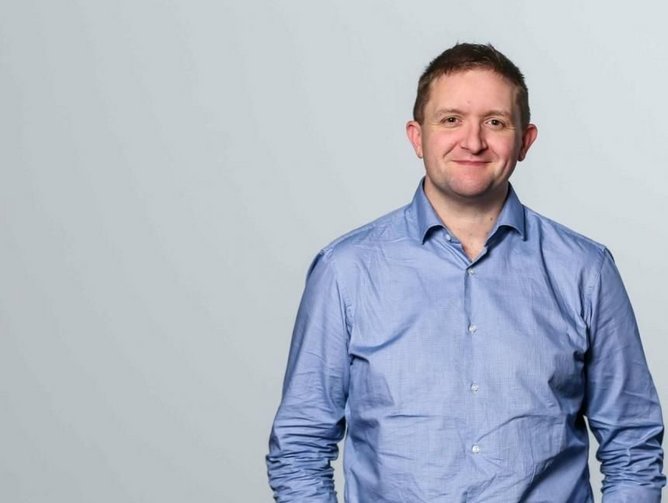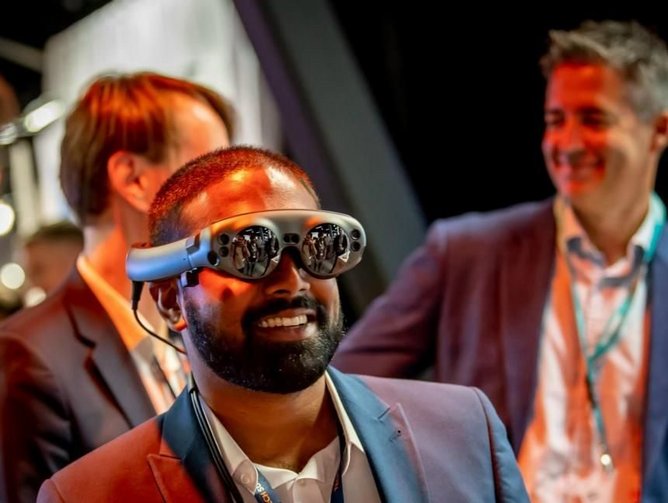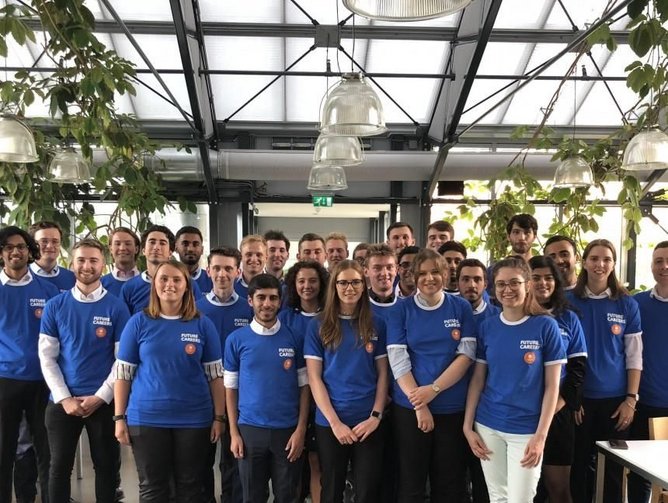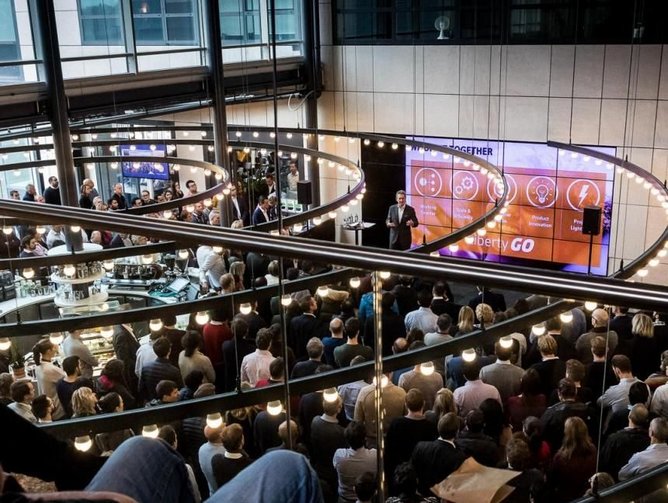Liberty Global undergoes a significant digital transformation across its portfolio
With a strong portfolio of brands across 10 countries, Liberty Global is the group behind the likes of Virgin Media, Telenet and UPC. As such, the telecommunications giant brings customers across Europe closer together through broadband, television, mobile and most importantly, their favourite content. Liberty Global boasts fibre-based networks connecting 21mn customers, as well as 6.4mn mobile subscribers and 12mn WiFi access points. With content investments from ITV to Lionsgate, it’s unlikely that your favourite brand of entertainment hasn’t been touched by Liberty Global in some way, and the modern telco giant continues to invest in technology across a changing industry landscape with increasing consumer demands.
Behind the significant transformation involved in developing digital across Liberty’s unique, constantly shifting profile is Duncan Macdonald, Vice President of Consumer Solutions and Digital Transformation. For the past four months, Macdonald has enjoyed a dual role at the company. “My core role is running Consumer IT for Liberty Global across 10 countries – that covers online, digital, back end… Everything that impacts the consumer within IT.” More recently, Macdonald has been given the role of CIO for UPC Switzerland, a key company under the Liberty umbrella, where he will partner on the company’s digital transformation – “a three-year journey in which we hope to transform the customer experience”, he enthuses.
A shifting industry
Macdonald firmly believes digital transformation is “absolutely vital” to Liberty Global and to the telcos it represents as they strive to deliver a range of digital services that are all-encompassing. “The telecom industry as a whole continues to transform,” he says. ““Liberty is currently updating its TV, broadband and mobile products which are driving a high customer NPS (net promoter score) and are being very well received by customers. Now that our products are driving excellent customer experience around accessing and using our products, we want to drive the same high quality and personalized customer experience across all channels and communications that interact with our customers.” Indeed, on-demand offerings from the likes of Netflix and Amazon have changed the way we consume content and shifted customer expectation, creating fierce competition for the traditional telco. “Everyone is on a similar journey at the moment – and a key aspect is digital,” says Macdonald
Macdonald’s closest affiliate, UPC Switzerland, is currently undergoing a three-year digital transformation journey. “We’re going to change the way the business is structured, putting in brand new capabilities to drive a more personalised experience,” he explains.
Along with safety and security, on-demand and personalisation are the order of the day when catering to the needs of the 21st century customer, and Macdonald argues this isn’t just an issue for telcos. “The lines between industries are becoming blurred,” he explains, outlining that transformation must be viewed in layers across the business and wider industry, as opposed to transforming an isolated department or sector. “When you speak to a lot of companies they’re only digitising across certain layers – primarily online layers and apps, but they’re not properly digitising the company.”
Telcos are at the centre of this transitional period in industry. “There’s a need to move quickly when getting new services to market,” Macdonald warns. “Digital is the only answer to this – but we need to be very careful on how we use data too. Security and privacy are our number one priority and we must tread carefully.”
On this issue, Liberty isn’t resting on its laurels. “We have relationships of trust with our customers and strong brands in the form of Virgin Media, UPC and Telenet. So natural trust exists and relationships have been there for a long period of time and it’s absolutely crucial that we continue in this vein,” Macdonald explains. “In the future, the success of digital will be seamlessly integrating our services and channels into the way our customers live and work. It’s an ecosystem. People want to talk to you through their user interfaces like Facebook or Google, so you have to integrate with those third parties – and you have to be very careful how you do that; it must be secure. In the future, I think having your own app or website will be less important,” he adds, explaining that a ‘headless’ architecture, where LG does not directly provide the user interface but still fulfill the interaction, whichever user interface (UI) the customer wants to connect to the company; e.g. Facebook or Siri. This will mean companies can reach end users through their choice of platform while maintaining quality, trust and security as a constant. “We need to ensure we have very, very safe interfaces built into them, being very controlled and careful with what we share.” To achieve all of this, strict data governance, availability of realtime data, comprehensive identity management and secure APIs are an absolute necessity.
Transforming across a vast portfolio
How, then, does Liberty Global manage to make digital work across a plethora of brands and platforms, with each of its markets all demanding different things? “There’s a healthy tension,” Macdonald laughs, “but there’s one thing nobody disagrees on: the importance of delivering a great customer experience.”
“We took a very brave step centralising all the technology strategy and delivery – ensuring an alignment around architectures successfully across all 10 affiliates – but now as we become more mature we must consider how to implement those in the right way for each market. There was a lot of research involved here, foremost around ‘what is digital?’ I believe ‘digital’ is all about personalisation,” Macdonald argues. “It depends on the individual customer and may not be about technology at all – a customer may still want a piece of paper.
“If people are just ‘doing digital’ to save costs, they’re not ‘doing digital’ – they’re ‘doing’ cost efficiency. The correct order to do things is understand the data defining the customer context; understand the needs of the customer segment; understand market conditions; and then really understand the journeys to give a customer what they want within the best possible experience. If people do want a personal touch, if they want to speak to someone, that is part of the digital journey.”
As digital not only transforms the world around it, but also transforms itself, meaning companies within Liberty Group’s portfolio need to think with agility about what they’ll need to be ready to embrace in the future. “It’s important to make sure we don’t close any avenues or create barriers to future markets. So when we started creating our enterprise solution, we did this in a way that was ultimately flexible. We didn’t force businesses to make decisions or close doors, we just said ‘we’re going to work with you on this journey’ – so once a business figured out where it wanted to go next, it could move at speed to implement it.”
Although the journeys Virgin Media, UPC and other brands have embarked on are underpinned by technology transformations, it is important to note they cannot be led by technology alone, but must be driven by the business itself and how it can be transformed. Citing advice from Severina Pascu, CEO of UPC Switzerland, Macdonald explains the layout of a successful transformation: “It starts with defining what the company wants to become, the culture it wants – you really have to focus on the culture, the vision, and the values you want to drive before you go any further. Once you define all that, you then move down to technology, capability and organisation.”
Collaborative partnership
To move along the Digital Transformation journey at speed, collaboration with software providers, platforms, vendors and partners will be key to the success of any company – and Liberty Global is certainly no exception. Macdonald is keenly aware of this and argues that the relationship must be fluid and flexible. “Vendors have to go on a journey as well,” he explains. “It’s key to find vendors that have to change the way they work – in the past, we’ve tried to get vendors for a fixed price to deliver a piece of work we specified, which was stressful. The future is a partner that sits side-by-side with you, owns the problem and is willing to flex on a daily basis.”
Rather than trying to buy off the shelf or develop a one-size-fits all solution, Liberty Global prefers to work with its partners toward a particular KPI, which Macdonald says “empowers people massively”. Owning a KPI and developing trust requires flexibility. “I want partners that are here for the journey. We’re not going to define our requirements or deliveries, but we will figure it out as we go.”
This is a challenge, but a fresh perspective builds healthier relationships and more successful, tailored solutions which benefit the end user, the company and the vendor too. “I don’t believe anyone in the industry is happy with the way things work. The partners I work with now are very open, mature and energetic – they want to go on a journey.”
One such partner is software company Sigma, which has been particularly involved with Virgin Media to help develop real-time services as part of a three-year journey. “If you make a change, you want it to happen right now,” Macdonald explains. “Sigma has been core in developing that. It’s taking traditional telco provisioning and changing it into a real-time digital platform.” Currently, Liberty is looking at how it can work alongside Sigma to develop other platforms to try to answer the questions. “How do you support any digital service you want in the future?”
Another key partnership was built out of a relationship with digital identity company UXP systems, which earlier this year was bought out by Amdocs. Now, Amdocs is a key partner in fulfilling identity management needs in line with Liberty’s philosophy of working on entire layers rather than silos. Heavily involved in the Telenet digital transformation has been BSS (business support systems) provider Netcracker, with the Netcracker 12 platform being instrumental in replacing legacy stacks and adding digital layers – something which goes hand in hand with a rapidly changing portfolio across an M&A landscape.
AI and the user experience
Will one technology in particular be vital to that stage? “I’m getting absolutely obsessed with artificial intelligence (AI) at the moment,” says Macdonald. “But it all comes down to what you define as AI – I don’t think there’s any one platform for all the tasks you need. The ‘understanding layer is at the top – do I understand speech and free text? – that’s one value, and the other is self-learning. In the future there will be convergence, but you’ve got to find the right AI for the right circumstance. It’s key that we don’t get tied into the wrong AI.” This is where the layers Macdonald talks about come in to build a digital enterprise. “You have to be able to put in and remove building blocks of digital capability as they develop, and you achieve this by being disciplined in the way you store data and knowledge. I think AI is going to be massive,” he adds. “I know people say it’s overhyped but I think in the next two or three years it will be absolutely key to detailed personalisation.”
In this area, a particularly productive relationship has been with Afiniti, which worked alongside Liberty to improve Virgin Media’s contact centres. Afiniti utilises AI to allow a customer to be assigned with the correct profile of agent so the optimum conversation can take place for both consumer and business. “Afiniti has an interesting offering beyond just care calls: they have a powerful data science capability. In a digital world, data is everything but the ability to run the data science on that is a key need in every market.
“Shouldn’t everything be a conversation? You can solve anything through a conversation,” says Macdonald. “If I have a question or a need, I just want to ask someone for the answer and the whole journey can be led through a conversation. It’s much easier for everyone.” In this way, Macdonald is convinced AI will be instrumental in the digital transformation of the customer experience away from ‘click and search’. Another partner, Live Person, is being used here primarily in customer care – but Macdonald is keen to explore other avenues with the AI element. “If we get the right AI behind that channel, it’s going to be very powerful.”
Accenture is another company Macdonald has a history with, as the global consultancy is one of the main system integrator he works with. “They’ve done a lot of work across Europe, partnering with early digital work and helping us figure out our architecture and our layers.” Another globally recognised name in the software space is Infosys, which has been involved in the development of Telenet’s online space and app development.
Looking to the future
“I think all big companies that have been around for 20+ years are going to have the same journey with the same challenges,” Macdonald continues. “People are going to have to be really brave in every industry. There will be a delicate balance of maintaining the quality roadmap on existing products and services while digitally transforming at speed to improve customer service.”
This change, even in the way industries are viewed as a more homogenous layer of digital transformation, will mean people have to adapt. “The skill sets we have valued won’t go away, but people will have to change their way of working,” Macdonald adds. “Digital is a massive industry right now, and Liberty has an interesting combination of having the reach of a global company but also a place where you can get things done. There’s energy, ability and drive. You’ve just got to do your thinking: where is the market going? How do we support our customers on this journey? There’s a lot of good energy. Good stress. And that drives creativity and innovation!”






